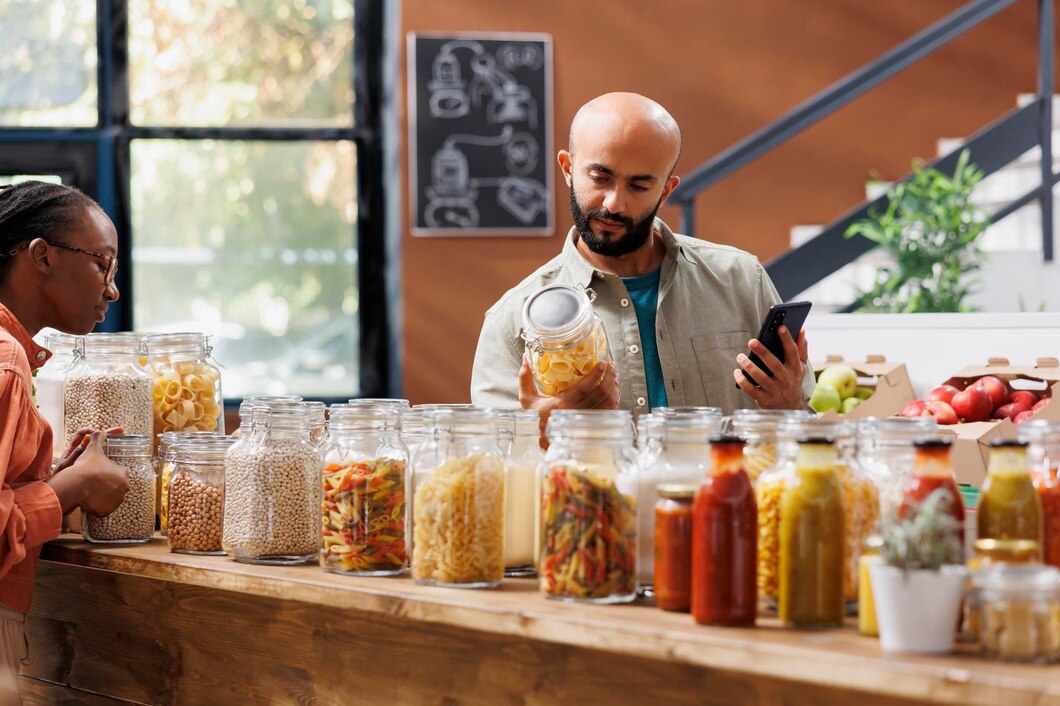Starting a food and beverage business in Botswana can be an exciting and profitable venture, given the country’s growing consumer market and thriving hospitality industry. With a rich cultural heritage and diverse culinary tastes, Botswana offers many opportunities for entrepreneurs looking to enter the food and beverage sector. However, like any business, it requires careful planning, knowledge of the market, and adherence to local regulations. In this guide, we will walk you through the key steps and considerations for launching a successful food and beverage business in Botswana.
1. Research the Market and Identify Your Niche
Before diving into the food and beverage business in Botswana, it’s essential to conduct thorough market research. Understanding the local food culture, customer preferences, and trends will give you a competitive edge.
Botswana’s food and beverage market is diverse, catering to a wide range of tastes, from traditional dishes to contemporary dining experiences. Consider the following when choosing your niche:
- Traditional Cuisine: Botswana is known for its rich culinary heritage. Traditional dishes such as bogobe (maize porridge), seswaa (beef stew), and dikgobe (beans and millet) are popular. Offering local delicacies could appeal to both locals and tourists.
- Fast Casual or Quick Service: Fast food, casual dining, and takeaways are in demand, particularly in urban areas like Gaborone, Francistown, and Maun. International and local food chains have capitalized on this demand.
- Health-Conscious Options: There is a growing interest in health and wellness, and many consumers are opting for healthier meal options such as vegetarian, vegan, and gluten-free foods. Offering nutritious options could help tap into this market.
- Catering and Event Services: Many businesses in Botswana require catering for corporate events, weddings, and other gatherings. Starting a catering service could open new revenue streams.
Identify your target audience and ensure your product offering aligns with their tastes, preferences, and needs. Whether you plan to focus on casual dining, a food truck, or a specialized product, carving out a unique selling proposition (USP) will help your business stand out.
2. Create a Business Plan
A well-structured business plan is crucial for the success of your food and beverage business. Your business plan will serve as a roadmap for your business and guide you through the process of starting and growing it. It should include the following:
- Executive Summary: Outline your business concept, vision, and goals.
- Market Analysis: Provide an overview of the food and beverage industry in Botswana, including current trends, target markets, and competition.
- Menu Development: Detail the types of food and drinks you plan to offer. Consider pricing, sourcing of ingredients, and the appeal to your target audience.
- Marketing and Sales Strategy: Define how you will attract customers, such as through social media, partnerships, or local advertising. Highlight any promotions or offers that could drive business.
- Financial Projections: Estimate the startup costs, operating expenses, and expected revenue. Include any anticipated profit margins and break-even analysis.
Having a clear business plan will also help secure funding from investors, banks, or other financial institutions.
3. Register Your Business and Obtain Necessary Licenses
Once you have your business plan in place, it’s time to legally register your food and beverage business. The process of setting up a business in Botswana is relatively straightforward, but it requires compliance with local regulations. Key steps include:
- Register with the Companies and Intellectual Property Authority (CIPA): To operate legally in Botswana, you will need to register your business with CIPA. This process will require selecting your business structure (e.g., sole proprietorship, partnership, or private company) and obtaining a business registration certificate.
- Obtain a Food License: The Botswana Ministry of Health and Wellness regulates food safety and hygiene. You will need to apply for a food license from the Department of Food Control. This ensures that your establishment meets the required health and safety standards.
- Secure a Trade License: A trade license is mandatory for businesses operating in Botswana. This is issued by the local council or municipality where your business is located.
- Compliance with Tax Regulations: Register with the Botswana Unified Revenue Service (BURS) for Value Added Tax (VAT) and income tax purposes.
Be sure to familiarize yourself with the specific licensing requirements for food businesses in Botswana. Ensuring compliance with health, safety, and tax regulations is crucial to avoid fines or business shutdowns.
4. Find a Suitable Location
The location of your food and beverage business plays a critical role in its success. Whether you’re opening a restaurant, cafe, or food truck, your location should attract the right customers.
- High Foot Traffic Areas: Consider opening in areas with heavy foot traffic, such as busy shopping centers, business districts, or near schools and universities. Areas with high tourist activity could also provide significant customer flow.
- Accessibility and Parking: Ensure that your location is easily accessible to customers, with adequate parking if necessary. This is particularly important for restaurants or catering services that cater to large groups.
- Target Market Proximity: Position your business close to your target audience. If your offering caters to professionals, consider locations near office buildings. For family-friendly offerings, proximity to residential areas may be beneficial.
Take the time to carefully assess your options, considering rent costs, visibility, and accessibility. The right location will attract more customers and contribute to the long-term success of your business.
5. Source Quality Ingredients and Suppliers
The quality of your food and beverages is paramount to building a loyal customer base. Establishing relationships with reliable suppliers is essential for maintaining consistent quality and supply.
- Local Suppliers: Botswana has a robust agricultural sector that produces a wide variety of ingredients. Consider sourcing fresh produce, dairy, and meats from local farmers to ensure quality and support the local economy.
- Imported Goods: For certain products not available locally, such as specific spices, beverages, or packaged goods, you may need to import them. Work with trusted importers and suppliers to ensure the consistency and quality of these items.
- Inventory Management: Establish an efficient inventory management system to track your stock, minimize waste, and ensure you always have the ingredients you need to meet demand.
Quality control is key to customer satisfaction. Regularly evaluate your suppliers and products to maintain the highest standards.
6. Develop a Marketing Strategy
Once your business is set up and you’re ready to launch, you’ll need a solid marketing strategy to attract customers. Digital marketing is an essential tool for promoting your food and beverage business in Botswana.
- Social Media: Utilize platforms like Facebook, Instagram, and Twitter to engage with customers, share enticing photos of your dishes, and announce promotions. Social media advertising can also help you reach a wider audience.
- Website and Online Ordering: A professional website can increase your visibility and enable online ordering or reservations. Consider offering delivery services through a mobile app or third-party platforms.
- Collaborations and Events: Partner with local influencers, event organizers, or businesses to host events or offer discounts. This will help expand your reach and attract new customers.
- Loyalty Programs: Implementing a loyalty program can encourage repeat business. Offer discounts, free meals, or exclusive deals to customers who return frequently.
Investing in a comprehensive marketing strategy will help your business build a strong brand, attract new customers, and foster customer loyalty.
7. Hire and Train a Skilled Team
As a food and beverage business owner, you will need to hire a skilled team to manage operations. Whether you’re running a small cafe or a large restaurant, a reliable and professional staff is key to delivering excellent customer service.
- Hiring Staff: Look for individuals with experience in the food and beverage industry. Depending on your business type, you may need chefs, waitstaff, baristas, cashiers, and kitchen assistants. Ensure that your staff understands customer service expectations and food safety protocols.
- Staff Training: Train your team on the importance of food safety, cleanliness, and quality customer service. Regularly review your procedures to ensure high standards are maintained.
- Employee Motivation: Motivated employees are more likely to provide excellent service. Consider offering incentives, opportunities for advancement, and a positive working environment to retain your staff.
8. Monitor and Scale Your Business
After launching your food and beverage business, monitor your performance to ensure you’re meeting your business goals. Track financials, customer feedback, and sales to identify areas of improvement.
- Customer Feedback: Listen to customer reviews and make necessary adjustments to your menu, pricing, or service. This can help you adapt to changing consumer preferences and improve satisfaction.
- Financial Monitoring: Regularly review your financial statements to ensure profitability. Look for cost-saving opportunities and track cash flow to avoid financial issues.
- Scaling Your Business: Once your business is established and profitable, consider scaling. This may include expanding to multiple locations, offering new products, or enhancing your marketing efforts.
Scaling your business strategically will enable you to grow and reach more customers, ultimately leading to greater profitability.
Starting a food and beverage business in Botswana can be a rewarding venture, with significant opportunities for growth. By conducting thorough market research, developing a solid business plan, obtaining necessary licenses, sourcing quality ingredients, and implementing a strong marketing strategy, you can lay the foundation for a successful business. With dedication, innovation, and customer-focused service, your food and beverage business can thrive in Botswana’s dynamic market.





